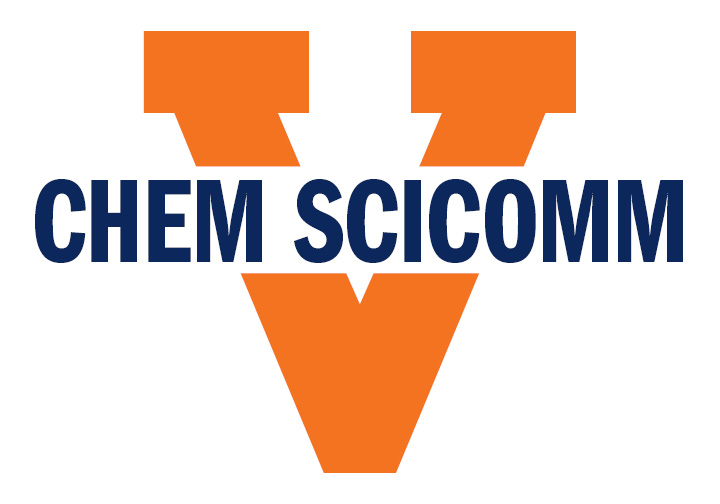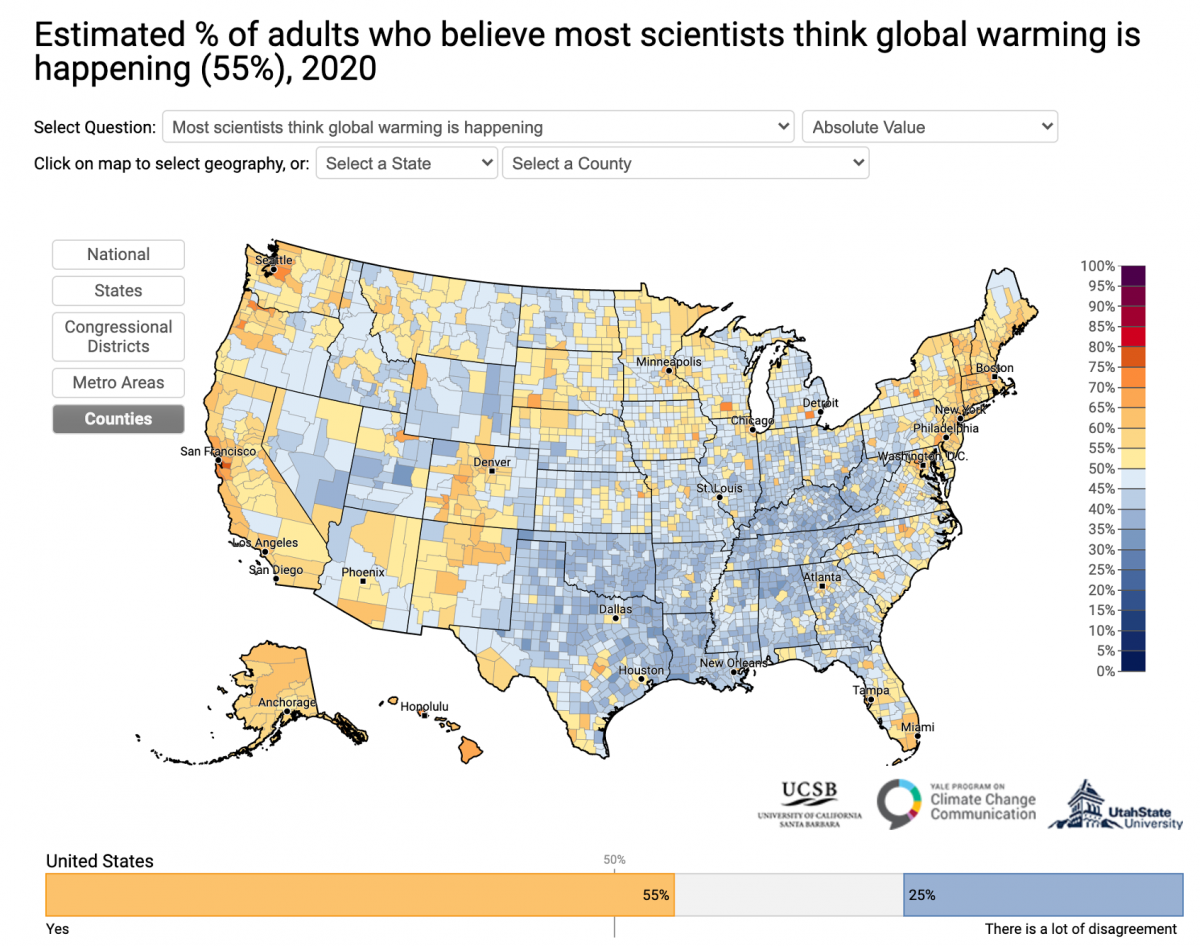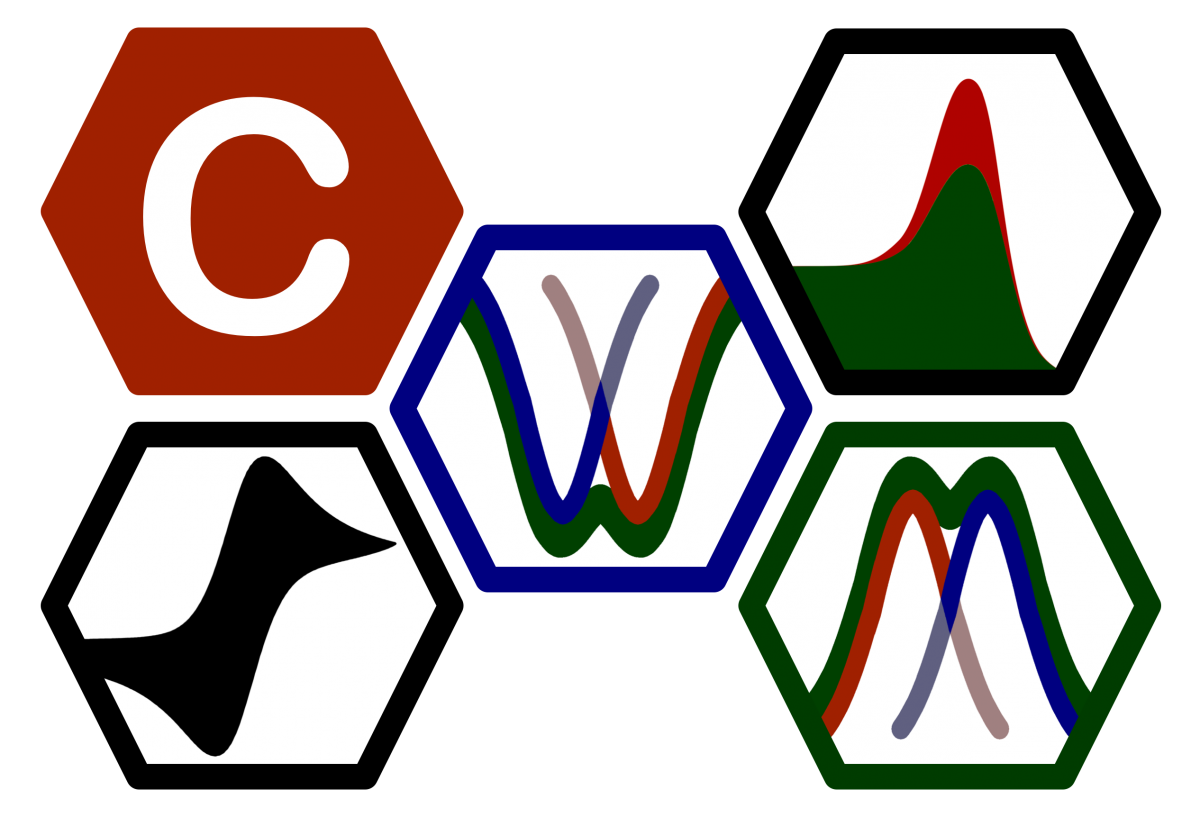About UVA ChemSciComm
The UVA Chemistry Science Communication Program

Pressing concerns and problems related to health, energy and the environment continue to drive interest in basic and applied research programs. Public perception and policies often lag behind scientific advancements, however, because of a disconnect between researchers and the communities they benefit. This impacts societal perceptions of important issues: 2019 represented the first year that more than half of adults in the United States (52%) believed that scientists agreed on global warming, in 2020 that number rose slightly (55%).1 Scientists are estimated to have at least a 97% consensus on anthropogenic effects being the primary cause for recent global warming and climate change.2 Science communication (SciComm) training can address these perception deficiencies by teaching researchers how to address content to a specific audience, effectively use a digital medium, relate high-level concepts without diluting meaning or importance.

County-level map showing percentage of adults who believe that
‘most scientists think global warming is happening’. Scientists have
at least a 97% consensus on global warming occurring.
UVA’s Department of Chemistry recognized the value of communicating science and made it a requirement of their PhD curriculum in 2016. Since that time, over 120 first-year Chemistry PhDs have taken a 1-credit course exposing them to the fundamentals of communicating research such as understanding an audience, crafting a message, and managing delivery. While this is valuable training, we also recognize that the students need additional practice later in their doctoral journey, or be interested in SciComm as a career. This mentorship program builds on existing resources (including PhDPlus3) to enhance and further develop the skills to which doctoral students have already been exposed.
The goals of this mentorship program are to: (1) facilitate access to media and speaking resources on campus; (2) offer conceptual and practical training in producing SciComm content; (3) facilitate the construction of a ‘published’ media portfolio of SciComm projects. These efforts are being developed in collaboration with Gail Hunger (Instructional Designer, Learning Design & Technology), and Marlit Hayslett (Director of Communication Training and Strategy, Office of Graduate and Postdoctoral Affairs). Students can apply to the SciComm mentorship cohort following successful matriculation as a Ph.D. candidate following their candidacy exam. To teach practical and conceptual skills in SciComm students will be expected to attend suggested on-campus lectures on relevant topics and produce periodic content for the Department of Chemistry website.
As small groups within the cohort, students will pitch ideas (content and media type) for the departmental website. Content ideas can include: interviews of Faculty (from UVA or elsewhere, remote or onsite), highlights of published work, or tutorials on concepts related to SciComm. Media types can include, but are not limited to, videos, podcasts, and articles. Following the pitch, students will be guided through the process of developing specific content and provided periodic feedback. At the pre-established pitch deadline, the content will be published on the Departmental Website (and YouTube, if applicable) and added to a digital portfolio. As a part of this training, students will have access to the College of Arts & Sciences Digital Media Lab on Campus, where practical training in media production and media equipment are available.
With further progression in the program, in collaboration with the Office of Graduate Studies, participants will also develop and present three-minute thesis (3MT4) talks to present to students visiting campus as part of the Louis Stokes Alliance for Minority Participation.5 This will give the mentorship cohort an opportunity to practice learned skills for a specific audience. Based on the successful model of the Resilience Education Program,6 students will also have a chance to give SciComm presentations to provide high quality education opportunities for underserved groups similar to the Darden Prison Program.
Upon completion of the mentorship program, students will be able to: describe underlying concepts relevant to SciComm, identify the content level appropriate for a specific audience, generate and edit SciComm content in specific media, reference their own digital portfolio of ‘published work’. They will also have an opportunity to practice practical skills for specific audiences interested in science who are underrepresented participants in STEM areas.
References
(1) Yale Climate Opinion Maps 2020. https://climatecommunication.yale.edu/visualizations-data
(2) John, C.; Naomi, O.; Peter, T. D.; William, R. L. A.; Bart, V.; Ed, W. M.; Carlton, J. S.; Stephan, L.; Andrew, G. S.; Sarah, A. G.; Dana, N.; Peter, J.; Mark, R.; Bärbel, W.; Rob, P.; Ken, R. Consensus on consensus: a synthesis of consensus estimates on human-caused global warming. Env. Res. Lett. 2016, 11, 048002.
(3) PhDPlus. https://phdplus.virginia.edu/.
(4) Three Minute Thesis (3MT) at UVA. https://gradstudies.virginia.edu/3MT.
(5) Virginia-North Carolina Alliance for Minority Participation. https://lsamp.virginia.edu/.
(6) Resilience Education. https://resilience-education.org/.



